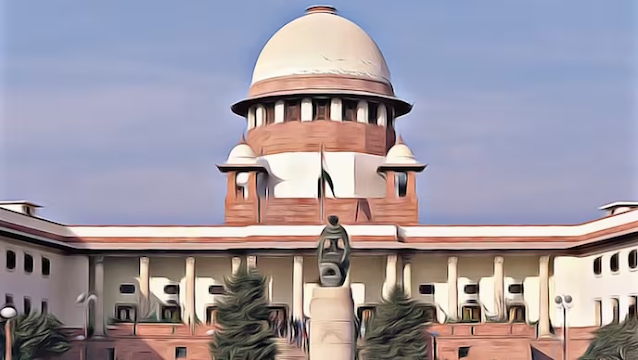
Supreme Court Quashes Maharashtra’s ‘Private Forest’ Land Tags, Says Due Process Not Followed
Top court rules that private lands cannot be classified as forests without legal procedure
Judgment offers relief to landowners and developers, reinforces property rights
By Our Legal Reporter
New Delhi: November 10, 2025:
In a landmark judgment, the Supreme Court of India has struck down the Maharashtra government’s move to classify hundreds of privately owned plots across Mumbai, Thane, and other districts as “private forests.” The Court set aside a 2018 Bombay High Court ruling that had upheld the state’s classification, ruling that the government failed to follow the legally mandated process under forest acquisition laws.
The decision, delivered on November 9, 2025, is expected to have far-reaching consequences for property owners, developers, and residents whose lands were suddenly tagged as “private forests,” restricting development and use.
Background of the Case
- In 2018, the Bombay High Court upheld the Maharashtra revenue department’s classification of numerous plots—ranging from one acre to over 100 acres—as “private forests.”
- This classification effectively froze development potential, as forest lands are protected under the Indian Forest Act, 1927 and subsequent environmental laws.
- Landowners and developers challenged the ruling, arguing that the state had bypassed due process and violated property rights.
- The matter reached the Supreme Court, where a bench led by Justice Vikram Nath examined whether the state had complied with the required legal steps before declaring private lands as forests.
Also Read: Gauhati High Court Upholds Tribunal Order Declaring Woman Illegal Migrant from Bangladesh
Supreme Court’s Observations
- Due Process Ignored: The state failed to follow the sequence of steps mandated under forest acquisition laws. Classification of private lands as forests requires proper notification, inquiry, and compensation procedures.
- Property Rights Protected: Arbitrary classification undermines constitutional protections for property owners. Landowners cannot be deprived of development rights without lawful justification.
- Bombay High Court Erred: The HC ruling ignored binding precedents of the Supreme Court. Judicial discipline requires lower courts to follow apex court directions.
- Revenue Records to Be Corrected: The Court ordered correction of revenue records to remove the “private forest” tag. The state may restart the process lawfully if it wishes to classify lands but must strictly follow procedure.
Also Read: Madras High Court Upholds SARFAESI Auctions: Property Valuation Must Be Done by Registered Valuers
Why This Ruling Matters
- Relief for Landowners: Thousands of property owners across Maharashtra regain development rights.
- Boost for Real Estate: Developers can resume stalled projects previously blocked by “private forest” tags.
- Strengthening Rule of Law: Reinforces that governments must follow due process before restricting property rights.
- Environmental Balance: While protecting forests remains vital, the Court clarified that genuine forests must be distinguished from private lands wrongly classified.
Also Read: ITAT Kolkata Rules: Gifts from Brother-in-Law Are Tax-Free Under Income Tax Act
Expert Opinions
- Property lawyers say the judgment restores confidence in land ownership and reduces arbitrary state action.
- Real estate developers argue that the ruling will unlock stalled housing projects, benefiting buyers.
- Environmentalists caution that while due process is essential, genuine forest lands must still be protected from encroachment.
Broader Implications
- For Landowners: Greater security in property rights. Ability to challenge arbitrary classifications.
- For Developers: Resumption of projects halted due to “private forest” tags. Increased investment confidence in Maharashtra’s real estate sector.
- For Government: Need to ensure strict compliance with forest laws. Must balance environmental protection with property rights.
Also Read: Supreme Court Rules: Tenant Cannot Challenge Landlord’s Ownership After Signing Rent Deed
Historical Context
- In the 1970s, large tracts of land were classified as “private forests” under the Maharashtra Private Forests (Acquisition) Act.
- Subsequent litigation questioned whether privately owned lands could be brought under forest laws without proper procedure.
- The Supreme Court has repeatedly emphasized that property rights cannot be curtailed arbitrarily.
This latest ruling continues that tradition, ensuring that environmental protection does not come at the cost of constitutional rights.
Conclusion
The Supreme Court’s decision to set aside the Bombay High Court ruling on “private forest” lands is a landmark in property law and environmental governance. By insisting on due process, the Court has reinforced the principle that citizens’ rights cannot be curtailed arbitrarily.
For landowners, the ruling restores development potential. For developers, it unlocks stalled projects. And for the government, it is a reminder that environmental protection must be pursued within the framework of law.
Also Read: How Indians Can Start a Company in the USA: Step-by-Step Guide, Costs, and Legal Requirements
🔑 Suggested Keywords for SEO & Faster Searches
- Supreme Court private forest land ruling Maharashtra
- Bombay High Court private forest case set aside
- Property rights Supreme Court judgment India
- Maharashtra private forest classification case
- Supreme Court real estate ruling Mumbai Thane
- Private forest land dispute India 2025
- Supreme Court due process property rights
- Forest laws Maharashtra Supreme Court case
- Supreme Court quashes private forest tags
- Landowners relief Supreme Court ruling India